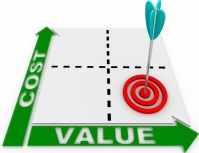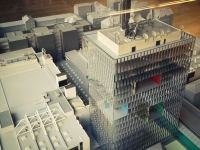Conference theme
The overall value of real estate and construction sector (RECS) is widely recognised in a new manner. Instead of the traditional viewing the built environment merely as a commodity the more modern understanding is much broader where the built environment is seen as an essential source for human well-being, health and competitiveness of regions and their sustainability. At the same time the overall performance expectations are much higher setting new kinds of demands for the end products and the processes leading towards those.
The weight of past is the main problem in the RECS sector. The traditional models of procurement, operations, organizations, the attitudes and culture relating to those are forming a challenging combination that is very difficult to change without their radical reformation. However, this change looks a very needed one and therefore all different key players and parties should put serious attention on it.
The 8th Nordic conference on Construction Economics and Organization has its focus on the business environment change described above and its consequences. With its general theme “Leadership for targeted change and proven advancements” this conference is bringing together leading experts from academia and industry for showing the way ahead based on the latest research based findings and industrial experiences.
1. Innovations for improved construction quality and performance
- Re-design of business models
- Innovation in construction
- Managing Change & Innovation
- Enabling change: Transition management
|
 |
2. Paradigm changes – what is expected from real estate and construction sector and what is ahead of us?
- A changing world and a changing industry
- Implications of the economic downturn
- Regulatory changes locally and globally
|

|
3. Understanding the value of spaces, buildings and built environment
- Sustainability and life-cycle aspects
- “Green business” in the real estate and construction sector
- Decision Models and frameworks
|
 |
4. Different stakeholders in the real estate and construction sector - Solutions for their integration and management
- Collaboration and integration in construction project management
- Relationship Management
- Customer/end-user centric construction operations
- Governance & Institutions
|
 |
5. New procurement models and approaches
- Effects of new types of procurement on the profession
- New arising roles in construction operations
- Implementation – Needs and Issues
- PPP, PFI, IPD, Project Alliance models and their variances
- Sustainable procurement
|
 |
6. Reshaping construction management for improved and resource efficiency
- New dimensions of construction site, project and portfolio management
- Performance in the real estate and construction sector
- Frameworks for Performance Measurement in Construction
- Lean construction
- New thinking models and their applications
- The future of performance measurement in construction
- Innovative performance measurement systems in construction
- The development, use and critique of performance measurement approaches
- Challenges in benchmarking construction performance measurement data
- Risk Management
|
 |
7. Digitalised construction and real estate management practices
- Digital practices in construction
- The evolution of digital design practices
- Application of IT in building production management
- New technologies for improving information flow and their benefits to the construction projects and organisations
- Improving the quality, timeliness, reliability, and Impact of information on project and organisational performance
|
 |
8. Other research-based or business-based results having linkage to the overall conference theme












